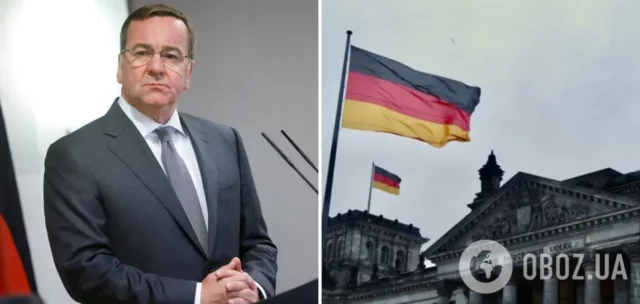German Defense Minister Backs Ukraine’s Use of German Weapons Against the Aggressor
In a pivotal moment during a briefing in Odessa, German Defense Minister Boris Pistorius gave a strong endorsement for Ukrainian forces to use German weaponry against their aggressors. This statement came alongside Ukrainian Defense Minister Rustem Umerov, highlighting a united front in the defense of Ukraine. Pistorius reiterated that these actions align with international law, emphasizing the crucial role that regulations must play amidst ongoing conflicts.
The Legal Framework of Warfare
It’s essential to understand that the discussion around warfare and the use of arms is not merely a political one; it’s deeply rooted in legal principles. Pistorius referred to comments made by German Chancellor Olaf Scholz, who noted that Ukraine could deploy German weapons «within the bounds of international law.» This assurance comes against a backdrop of questions surrounding the legitimacy of actions taken on foreign soil, particularly in relation to the ongoing war.
Maintaining Boundaries: The Importance of Agreements
While Pistorius expressed his support, he also highlighted the necessity of adhering to bilateral agreements and steering clear of discussions that might be seen as crossing «red lines.» This sentiment resonates with the historical complexities of international relations, where even a slight misstep can lead to significant diplomatic fallout. It’s a balancing act that requires not only political savvy but also a keen understanding of the geopolitical landscape.
An Expanding Coalition of Support
What’s particularly noteworthy in this context is the broader coalition supporting Ukraine. Thirteen nations have officially permitted Ukraine to utilize Western weaponry on enemy territory. This coalition includes:
- Finland
- France
- Lithuania
- Latvia
- Sweden
- Estonia
- Poland
- The Czech Republic
- The United Kingdom
- The Netherlands
- Canada
- Denmark
- Norway
Such widespread support signifies a dedicated effort among allies to bolster Ukraine’s defense capabilities. In today’s interconnected world, international support can often be a game changer. For instance, consider the impact that advanced weaponry has had on the battlefield—armed forces equipped with better technology manage to turn the tide of conflict more readily than those without.
Looking Ahead: The Path of Consideration
As we move forward, the discussions around military aid and its deployment will undoubtedly continue. The importance of nuanced deliberation cannot be overstated; every decision made at this juncture will resonate for years to come. As we reflect on these developments, it’s vital to remain engaged and informed about how international support shapes the future of Ukraine and its defense strategies.
In conclusion, the endorsement from Germany is not just a show of support; it reflects a complex interplay of legal, political, and moral considerations that define modern warfare. As citizens and global participants, understanding these dynamics empowers us to engage in meaningful conversations about peace, security, and international relations.





